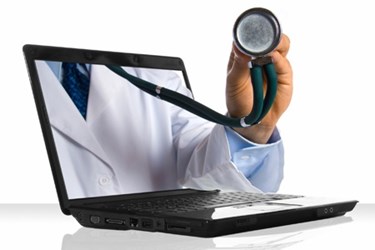mHealth: Moving Out Of The "Discovery Phase"
By Megan Williams, contributing writer

mHealth is at a critical growth point, and what happens beyond that point will depend largely on how the data that’s generated and collected by mobile health devices is used. This is the sentiment echoed in an article from HealthData Management that examines mHealth and its future.
Tom Giannulli, M.D. and CMIO (chief medical information officer) at cloud-based medical office software and services vendor, Kareo, sees mobile healthcare as very much still in a “discovery phase” and states that “there may be some really important medical information coming from a routinely worn device like an Apple Watch,” but at the same time, he believes that true insight will be contingent on a “long-term, large data basis.”
A Push In The Right Direction
As with much of the systemic advancements in healthcare, government intervention plays an important role. In January, the U.S. FDA approved a set of medical apps that allows diabetics to share secure data from a continuous glucose monitor.
The app, Share Direct Secondary by Dexcom, is set to fulfill a genuine need in the diabetes community. Alberto Gutierrez, Ph.D., director of the Office of In Vitro Diagnostics and Radiological Health in the FDA’s Center For Devices And Radiological Health weighs in: “This innovative technology has been eagerly awaited by the diabetes community, especially caregivers of children with diabetes who want to monitor their glucose levels remotely. Today’s marketing permission paves the way for similar technologies to be marketed in the United States.”
The device features a wire-like sensor that is inserted directly under a patient’s skin. An externally-worn device continuously monitors blood glucose levels and reports these findings back to a provider.
Important Qualifiers
We can expect to see increasingly directed advancement in the mobile health market as the FDA turns its eye to health technologies that qualify as “low risk.” In February, the agency released guidance around the class of products, outlining what types of products qualify, and how they should be treated.
The draft document addresses what qualifies as a “general wellness claim,” specifying claims including:
- promoting or maintaining a healthy weight
- promoting physical fitness through logs, tracking, or trend exercise activity
- promoting sleep management
A Bright Future
HealthData Management also predicts significant benefits as a result of the use of mobile over the next few years. Soreon Research predicts that by 2020, smart wearable devices may help save up to 1.3 million lives because of a reduction in mortality from obesity and cardiovascular diseases. The company also expects to see a growth from $2 billion to $41 billion in the same time period.
Going Deeper
To learn more about industry leader insight into the growth of mobile technology in the industry, read “Survey Points to Leveraging Mobile In Healthcare.”
